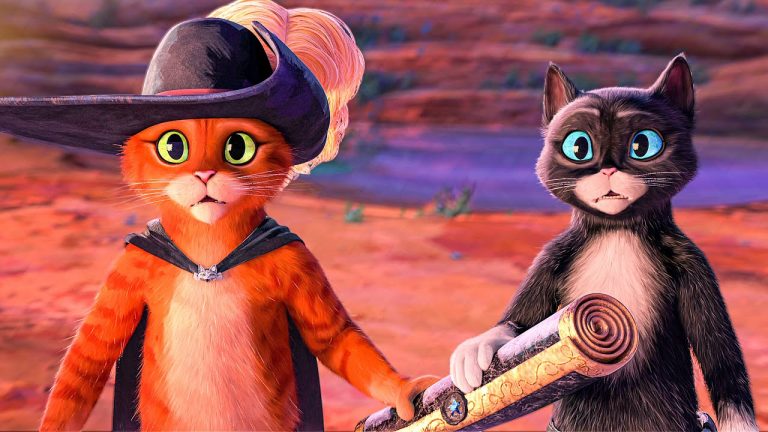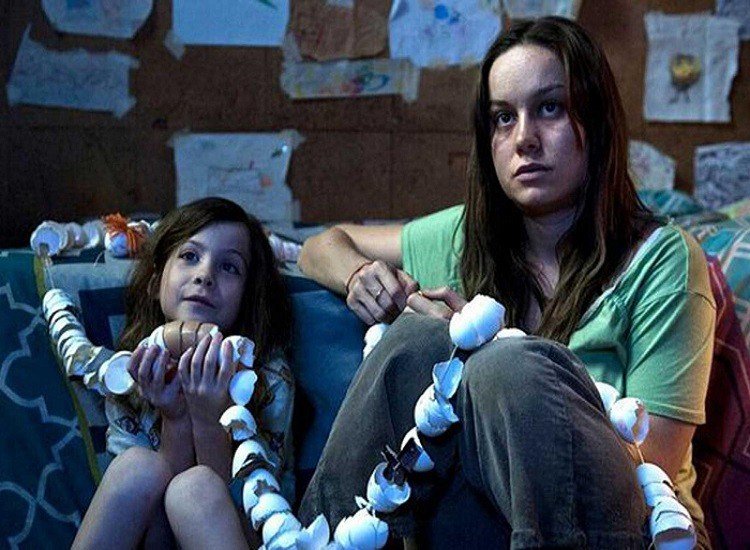Everything Everywhere All at Once Explained: Ending & Themes Analyzed: Okay, so first off, that title is misleading. I do not have an explanation for everything, everywhere all at once. I am a normal human being, not an all-knowing hermit or the Prime Minister of India. But now that you have been lured in, we can talk a bit more about his surreal cinematic masterpiece few of us would ever forget. So, what did we just see? Believe me; it is very hard for writers like me to sit down and express our feelings about experiences like ‘Everything, Everywhere, All at Once.’ All our skills and wisdom over the years have come up short. Directed by the (a lowercase ‘t’ to not offend Daniel Kwan) Daniels, the film serves up mammoth genres to defy classification, except the one where it is about the lifeblood of our existence: the human connection.
Also, Read – Swiss Army Man (2016) Review
The film is a beautiful depiction of the cultural convergence of American and Chinese traditions. Like ‘Minari’, we see an immigrant family struggling to make ends meet and connect with each other. The disconnect among the members is akin to the ‘Ghost Town’ narrative that sees outsiders arrive in a foreign land and cannot find their way. There are stark observations about the innate nihilism in the present Gen Z, identity crisis, fractured relationships, and the existential coming together of all these issues. The confrontation, though, is not meditative – at least externally – or weighed down by the melancholic substance of the subject matter. Instead, it comes in the form of this intricate multiverse madness that is as enjoyable as it is absurd and touching. This explainer is an innocent attempt to explain ‘Everything, Everywhere, All at Once’ and everything related to it, including the ending. I got you again. Anyway, happy reading!
Everything Everywhere All at Once Plot Synopsis:
Such is the Daniels’ amok imagination, ‘Everything’ takes on hundreds of different faces, moods, and emotions. It is essentially stylized as a multiverse/sci-fi story about a secret mission that Evelyn (Michelle Yeoh) must complete in the real world to stop the destruction of all the universes. In doing so, she has to take down Jobu Tupaki, an omniscient entity that looks exactly like her daughter. The democratization of power so achieved stands to be destroyed if Evelyn doesn’t soldier up. But a mother’s love is not so fragile as to fall to such assertions. This Evenly, who is viewed as the biggest failure among all Evelyns in all the universes combined, cuts through the noise around her to embark on a mission to save her daughter. As is the case with one other Netflix original that was released this year, all of the things that we don’t actually happen.

Michelle Yeoh
cr: Allyson Riggs/A24
The illusion of the story is to really explore the depths of the broken relationships that the Wangs have with each other. The glimpses in between where they reconcile – especially that scene near the bagel in the third part – are for the characters. Everything else; for the viewer’s forever insatiable need for something new and refreshing.
Checkout – Everything Everywhere: What Does The Everything Bagel Mean?
You’re so capable of everything because you’re so bad at everything.
How Does the Multiverse Work, Exactly?
Every variable choice adds a new universe to the multiverse. For all the decisions that we do not take, a version of us becomes the person we didn’t become in one universe in their universe. For instance, suppose you had a choice to become either a lawyer or a doctor in your life (so you’re definitely a middle-class Indian). If you chose to become a lawyer in the first universe, a different ‘you’ would become a doctor in the second, and so on. This phenomenon is instant and does not have a great scientific explanation to it. It is just something that happens. Who knows, maybe it is true in our life as well and we just don’t know it, yet?
What is Verse Jumping?
Now, this is an interesting narrative tool that the Daniels use to add the pizazz to their film. So basically, a person in a certain universe can gain the consciousness and the skillset of another version of them from another universe, subject to the completion of an idiosyncratic detail such as professing love to a person trying to kill you or taking a pointy shaped thing in your bum. It can be anything. But, you have to complete that detail to be able to use the other version’s skill – whatever it may be. Evelyn, when she first jumps ship, has to profess her love to Deirdre in order to gain the skills of the version of her in another universe that knows martial arts.
Related to Everything Everywhere All at Once – Doctor Strange In The Multiverse Of Madness Explained: Ending & Themes Analyzed
Those in the Alphaverse – Alpha Waymond’s universe – can also use the body of other people to use this technique and control their bodies. This skill is rare, and that is why it is only available to the Alpha universe. Another offshoot of verse jumping is that it can be mentally exhausting. The amount of jumping that Evelyn does fries her brain in the first part of the film. It also allows a version of you to be transported into the body of another version of you in another universe for a while.
What is the relationship between Jobu and Evelyn, and why is the latter Key to solving the conundrum?
In the alpha-verse, Evelyn had a daughter whom she subjected to immense mental pressure in order to transcend the skills they had to verse jump. In the process, the intensity of the experiment was such that Joy, her daughter in the alpha-verse, suffered a fracturing of the brain. Like a superhero, she could now simultaneously exist in all universes at once. She could, essentially, be everything, everywhere, all at once. This made her an omnipotent being in the cinematic universe of the film. SO actually, Jobu is Evelyn’s daughter but not like she remembers her. The vile form she was forced to take wants revenge against Evelyn – it seems at first – but actually, she wants someone who could see what Jobu does; feel what Jobu feels. In a kindred sense, Jobu wants to be seen and understood, a direct metaphor for Joy in the normal universe. Evelyn is key to solving this conundrum because she is the one who has created all these projections in her mind. The coming-of-age element of the film is strongly supported by the notion as well.
Does Jobu Tupaki want to Destroy all the Universes?
In theory, yes. But because they are not real, not really. As the Daniels have pointed out, Jobu’s tryst with the universes represents Joy’s and a generation’s struggle with accepting the positive things in life. Nihilism has become a fashionable thing. The mindset that nothing matters in the world and every good thing in our life is bound to get over someday has rendered many Gen Z individuals hopeless. Joy suffers from a similar set of insecurities and negative perceptions about her life. Evelyn’s lack of acceptance and consideration for Joy doesn’t make her feel valued. Evelyn unabashedly calls Joy things like “sick,” “confused,” and “fat,” all of which have an adverse impact on her personality. So Jobu might have been perceived as a villain until the third part of the film became active, but she really is a victim and projection of Joy’s mind.
Everything Everywhere All at Once Ending Explained:
Evelyn, after realizing that it is her daughter whom she wants to get back, uses her experience of all universes simultaneously to wade off Jobu and Gong Gon’s armies of men by helping them find happiness. Evelyn recounts the heartbreak she went through when her father just disowned her and let her go without hesitance. Not once did he consider the fact that Evelyn, after all, was his daughter. Evelyn did not want to repeat the same mistake with Joy and hence does everything to confront her mistakes and parenting blunder with Joy. The two speak their hearts out and reconcile in an emotional sequence. The ending happens in the normal universe where the family’s individuals are all their imperfect selves. They have resolved their differences, accepted their mistakes, and have now found happiness, all at once.







